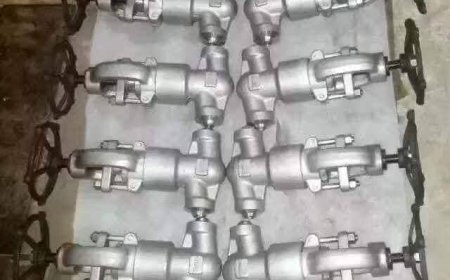AC vs DC in Medical Power Supplies: Which One’s Better for Life-Saving Equipment?
AC vs DC in medical power supplies: Understand which power type is best for critical devices, balancing reliability, efficiency, and patient safety.

Lets be honest in a hospital or clinic, theres no room for power issues. Whether its a ventilator, MRI machine, or a simple patient monitor, medical equipment needs reliable power every single time it's turned on. Theres no luxury of a second chance when lives are on the line.
So heres the big question that many healthcare teams ask themselves:
Should we be using AC or DC power for medical devices?
If youre involved in choosing, maintaining, or using medical equipment, this is a conversation worth having. The type of power you rely on can affect everything from equipment performance to patient safety.
Lets walk through it together in simple, everyday language no tech jargon needed.
Whats the Difference Between AC and DC Power?
Well keep this part short and sweet.
- AC (Alternating Current) is the power that comes out of wall outlets the same kind you use at home. The current changes direction really fast, which makes it great for sending electricity across buildings or cities.
- DC (Direct Current) flows in just one direction. Its the type of power you get from batteries. Steady, reliable, and super consistent.
Both types are used in healthcare the key is knowing where and when each makes the most sense.
Why AC Power Still Works Well in Hospitals
Theres a reason most hospitals are wired with AC its been the standard for decades, and a lot of big, essential equipment is built to run on it.
Heres why AC still has a strong place in healthcare:
1. Its Already There
Most medical facilities are set up for AC. That means equipment like CT scanners, X-ray machines, or surgical tables can just plug in and work no need for extra setup.
2. It Travels Well
AC can move through long wires without losing much strength. In a big hospital, thats a huge plus. You can power a device at one end of the building from a source way over on the other.
3. Fewer Gadgets in the Middle
If your equipment runs on AC already, theres no need for converters or extra hardware. That means fewer things that can fail or need repair later.
Still, AC isnt the perfect fit for everything especially in todays world where flexibility and mobility are becoming essential.
Why DC Power Is Becoming More Popular in Healthcare
As medical care moves beyond the hospital to homes, ambulances, and mobile clinics DC power is stepping into the spotlight.
Heres why more modern medical devices are leaning toward DC:
1. Perfect for Anything Battery-Powered
From defibrillators to infusion pumps to portable monitors, a lot of life-saving devices are battery-operated. And guess what? Batteries naturally give out DC power. No need to convert anything just charge up and go.
2. Clean, Steady Flow
DC delivers power in a smooth, stable stream. Thats ideal for sensitive electronics especially devices that track vital signs or deliver medication.
3. Runs Cooler, Wastes Less
DC systems often generate less heat and use energy more efficiently. Thats great for compact devices that run for long hours or need to stay cool in tight spaces.
So... Which Ones Better?
Heres the honest answer: it depends on the situation.
- Use AC for big machines that stay in one place and plug into the wall like MRI or ultrasound systems.
- Use DC for portable, battery-powered gear, or equipment that needs precise, clean power like patient monitors or mobile ventilators.
And heres something a lot of people dont realize:
Most modern devices use both. They take AC from the wall, then convert it to DC inside the machine giving you the flexibility of AC with the performance of DC. Pretty smart, right?
Power Supply Quality Matters More Than You Think
Whether youre using AC, DC, or a bit of both the one thing that should never be compromised is the quality of your power source.
Medical power supplies arent just regular power bricks. Theyre specifically designed for sensitive, mission-critical environments. They have to meet strict safety standards and perform reliably under pressure.
Cheap or poorly made power supplies can cause overheating, data errors, or even complete equipment failure. And in a hospital, thats not just inconvenient it can be dangerous.
Thats why it's important to get your gear from trusted power supply distributors who understand the needs of the healthcare industry. Theyll help you find equipment thats certified, tested, and ready for real-world use not just something that looks good on paper.
Final Thoughts
So AC or DC?
- AC is reliable, convenient, and built into most hospital infrastructures.
- DC is efficient, mobile-friendly, and ideal for todays portable medical technology.
The real trick is making sure your medical power supplies are the right match for the device theyre powering and for the job that device is doing.
Because when youre dealing with equipment that supports or saves lives, theres no such thing as "just a power supply." Its part of the lifeline.










































